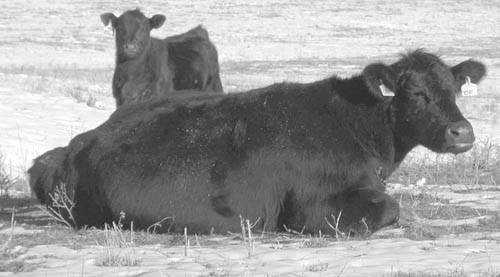Is COOL going to be cool?

Despite record high cattle prices in 2003 Vernon County ranchers have been casting a worried eye on the ongoing COOL saga. Early in the year some cattle producers and most meat packers were vehemently opposed to the idea but as things developed, and the Canadian border was shut down because of a single case of BSE, the mood shifted.
The Country of Origin Labeling, or COOL, amendment that was passed as law with the 2002 Farm Bill, is going to effect everyone in the agriculture industry from the owner of the seedstock operation to the third grader with their first 4-H lamb.
The COOL mandates will require that all hogs, cattle, lambs, fish, shellfish, perishable agriculture commodities and peanuts prove the country they were born, raised and processed in, at the time of retail. Right now this is voluntary but as of Sept. 30, 2004, proof of all steps of the procedure will be mandatory.
An opponent of the original plan Jon Caspers, president of the National Pork Producers Council, thinks that the USDA needs to minimize costs for both producers and consumers. Costs could run as much as $2 a hog, said Caspers, if the USDA goes to a system of individual identification for the hogs. Because pigs tend to be held in groups because of disease purposes. He feels that it would be a better approach to give a group of hogs their certification rather than do it individually.
Caspers foresees the USDA placing the burden of the responsibility for knowing the country of origin of the meat they sell. This will mean that retailers will demand this information from the packers and the regulations will further trickle down the ladder to the individual producer.
The COOL proponents want to let consumers know where the meat they are buying is coming from. The Missouri Farmers Union maintains that impact for producers will be very small. Jill Lucht, of the Missouri Farmers Union, said that COOL puts the burden of proof on the importer, not the individual farmer or rancher. It's a country-of-origin labeling law, not a farm-of-origin law. She said that the large meat packing companies have been intentionally telling producers horror stories about three-dollar-a-head ear tags and loads of paperwork.
In July 208 to 193 vote in the House prohibited mandatory country of origin labeling for beef, pork and lamb producers by stopping the Department of Agriculture from enforcing it for at least two years.
As the year ends the agriculture community seems torn down the middle as producers, rural organizations retailers and packers choose sides in the ongoing battle over COOL. What is complicating matters is after the Canadian, and then American, BSE scare some importers of American beef are wanting to see a country of origin program implemented. In the end there is only one group that will be guaranteed to make money off COOL, Congress.
